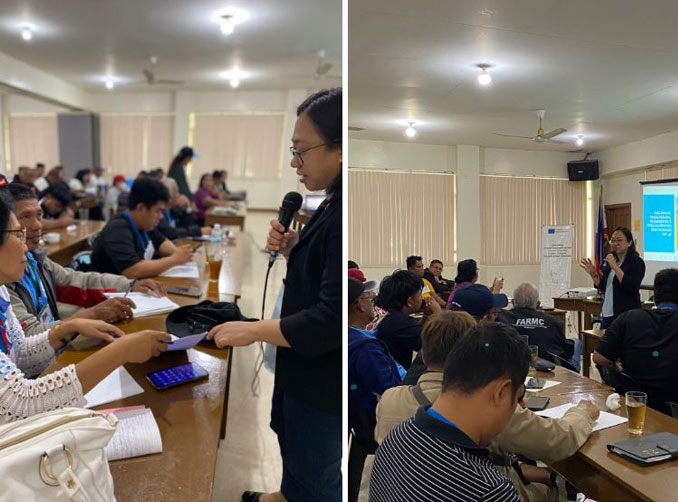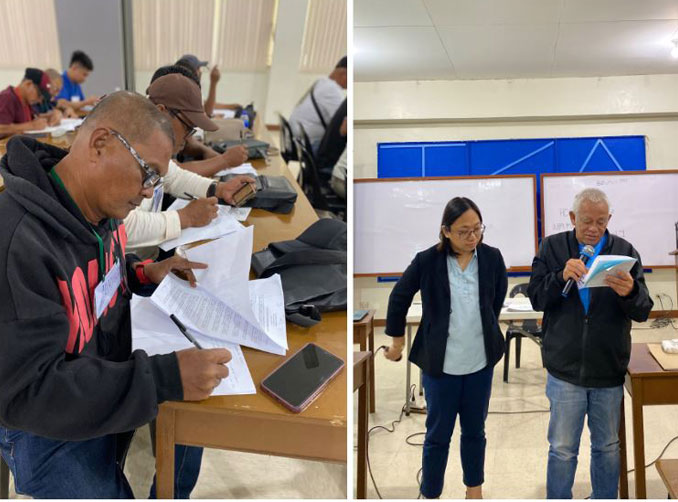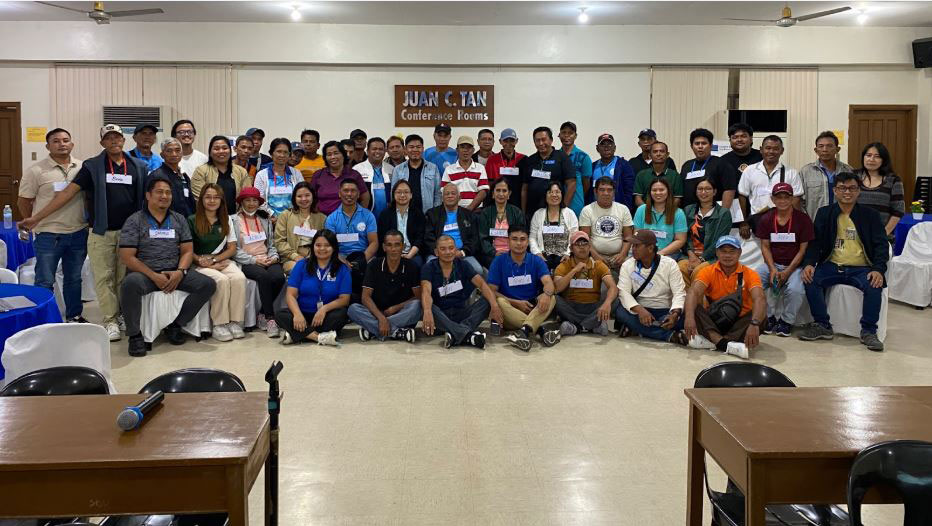QUEZON Province, Philippines – Fisherfolk representatives from sixteen municipalities bordering Lamon Bay in Quezon Province convened for a crucial two-day training on March 12–13, 2025, at the ISO Walter Hogan Conference Center. The initiative, spearheaded by Tanggol Kalikasan
under the Strengthening Integrated Resources in Coastal Communities in Quezon project, focused on empowering both fisherfolk and local government units in the creation and promotion of ordinances and policies designed to safeguard coastal and marine resources while bolstering sustainable livelihoods.
The training brought together select representatives from the Integrated/Municipal Fisheries and Aquatic Resources Management Councils (I/MFARMCs) and Municipal Agriculture Offices (MAOs) of Polillo, Atimonan, Alabat, Perez, General Nakar, Infanta, Patnanungan, Quezon, Jomalig, Lopez, Real, Burdeos, Gumaca, Panukulan, Calauag, and Mauban, all within Quezon province. This was conducted under the project Strengthening Integrated Resources in Coastal Communities in Quezon, led by Tanggol Kalikasan

Atty. Psyche Tolentino, a staff lawyer from Tanggol Kalikasan, guided the participants through a series of discussions and workshops. The sessions addressed critical challenges, notably the insufficient enforcement of Republic Act 10654, also known as The Amended Philippine Fisheries Code of 1998, and existing local fisheries ordinances.
Through active engagement and collaborative learning, the attendees collectively worked towards formulating tangible action plans for their respective municipalities. A significant achievement of the training was the enhancement of their technical expertise in drafting a revised Unified Municipal Fisheries Ordinance (UMFO). This UMFO is envisioned as a critical instrument in the fight against Illegal, Unreported, and Unregulated Fishing (IUUF), a persistent threat to the livelihoods and food security of the region.
Concluding the two-day event, the participants pledged to maintain ongoing coordination and the exchange of knowledge. This commitment aims to ensure that the policies and ordinances they develop will be effective, equitable, and genuinely advantageous for all fisherfolk within their communities.

At the conclusion of the training, the participants committed to continued coordination and knowledge-sharing to ensure that the policies and ordinances they craft will be effective, fair, and truly beneficial to every fisherfolk in their respective communities.

